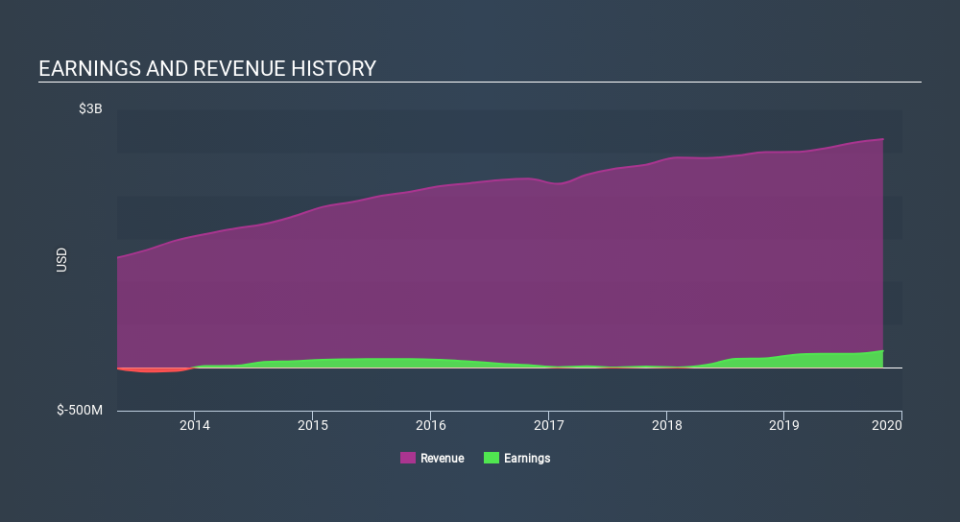Does Market Volatility Impact RH's (NYSE:RH) Share Price?

If you own shares in RH (NYSE:RH) then it's worth thinking about how it contributes to the volatility of your portfolio, overall. In finance, Beta is a measure of volatility. Volatility is considered to be a measure of risk in modern finance theory. Investors may think of volatility as falling into two main categories. The first category is company specific volatility. This can be dealt with by limiting your exposure to any particular stock. The second type is the broader market volatility, which you cannot diversify away, since it arises from macroeconomic factors which directly affects all the stocks on the market.
Some stocks are more sensitive to general market forces than others. Some investors use beta as a measure of how much a certain stock is impacted by market risk (volatility). While we should keep in mind that Warren Buffett has cautioned that 'Volatility is far from synonymous with risk', beta is still a useful factor to consider. To make good use of it you must first know that the beta of the overall market is one. A stock with a beta greater than one is more sensitive to broader market movements than a stock with a beta of less than one.
Check out our latest analysis for RH
What we can learn from RH's beta value
Given that it has a beta of 1.84, we can surmise that the RH share price has been fairly sensitive to market volatility (over the last 5 years). Based on this history, investors should be aware that RH are likely to rise strongly in times of greed, but sell off in times of fear. Beta is worth considering, but it's also important to consider whether RH is growing earnings and revenue. You can take a look for yourself, below.
Could RH's size cause it to be more volatile?
With a market capitalisation of US$4.1b, RH is a pretty big company, even by global standards. It is quite likely well known to very many investors. It takes a lot of money to influence the share price of large companies like this one. That makes it interesting to note that its share price has a history of sensitivity to market volatility. There might be some aspect of the business that means profits are leveraged to the economic cycle.
What this means for you:
Since RH tends to moves up when the market is going up, and down when it's going down, potential investors may wish to reflect on the overall market, when considering the stock. This article aims to educate investors about beta values, but it's well worth looking at important company-specific fundamentals such as RH’s financial health and performance track record. I highly recommend you dive deeper by considering the following:
Future Outlook: What are well-informed industry analysts predicting for RH’s future growth? Take a look at our free research report of analyst consensus for RH’s outlook.
Past Track Record: Has RH been consistently performing well irrespective of the ups and downs in the market? Go into more detail in the past performance analysis and take a look at the free visual representations of RH's historicals for more clarity.
Other Interesting Stocks: It's worth checking to see how RH measures up against other companies on valuation. You could start with this free list of prospective options.
If you spot an error that warrants correction, please contact the editor at editorial-team@simplywallst.com. This article by Simply Wall St is general in nature. It does not constitute a recommendation to buy or sell any stock, and does not take account of your objectives, or your financial situation. Simply Wall St has no position in the stocks mentioned.
We aim to bring you long-term focused research analysis driven by fundamental data. Note that our analysis may not factor in the latest price-sensitive company announcements or qualitative material. Thank you for reading.

 Yahoo Finance
Yahoo Finance 
